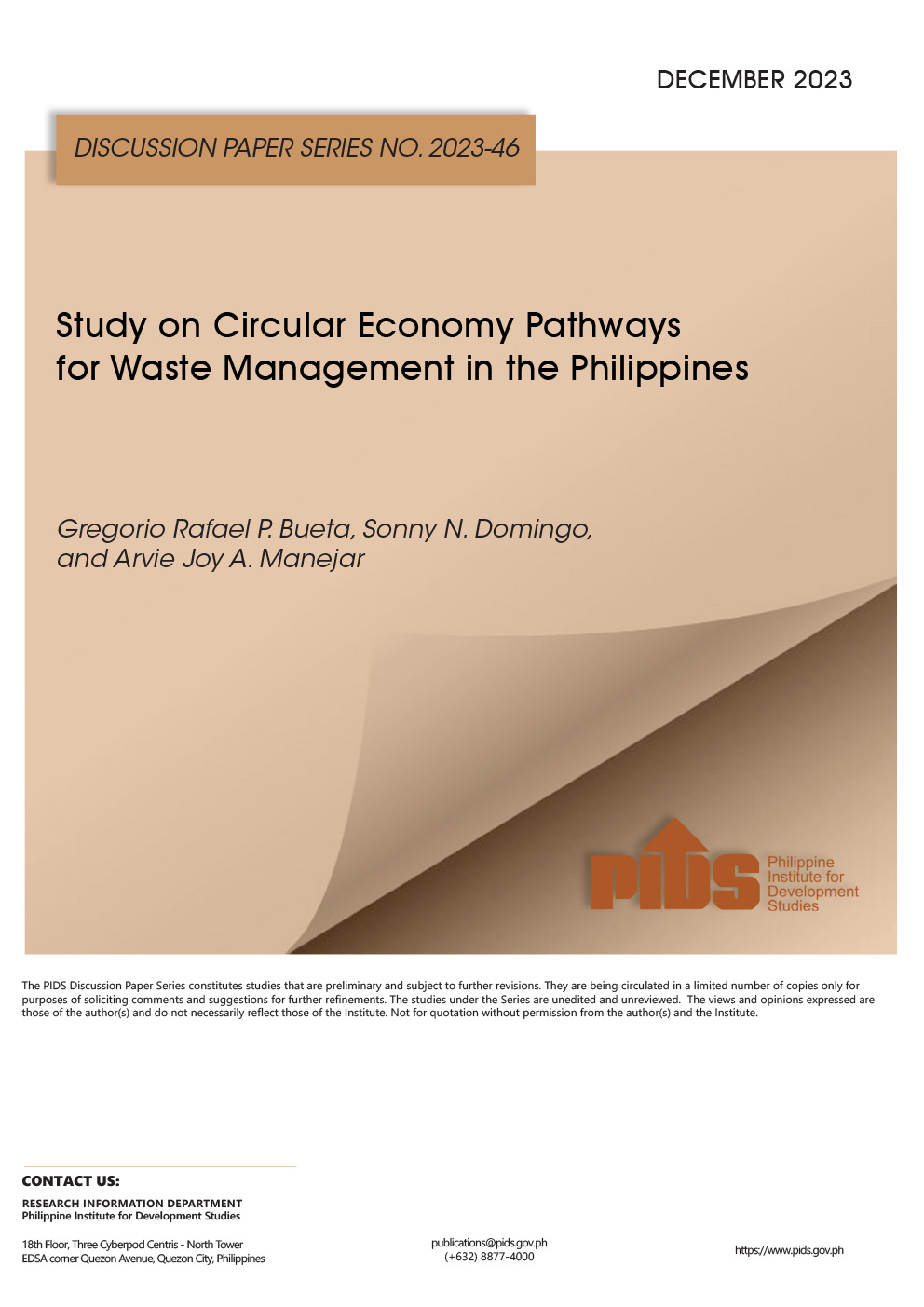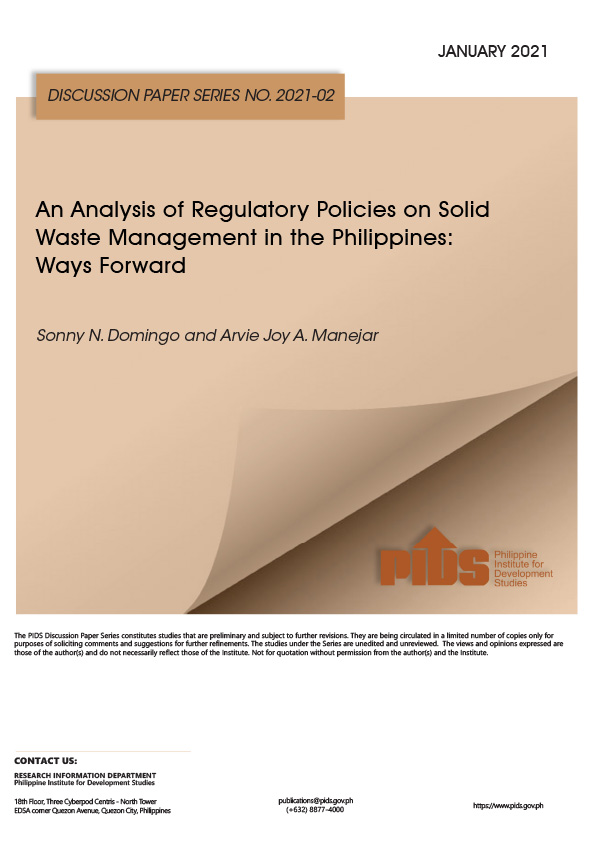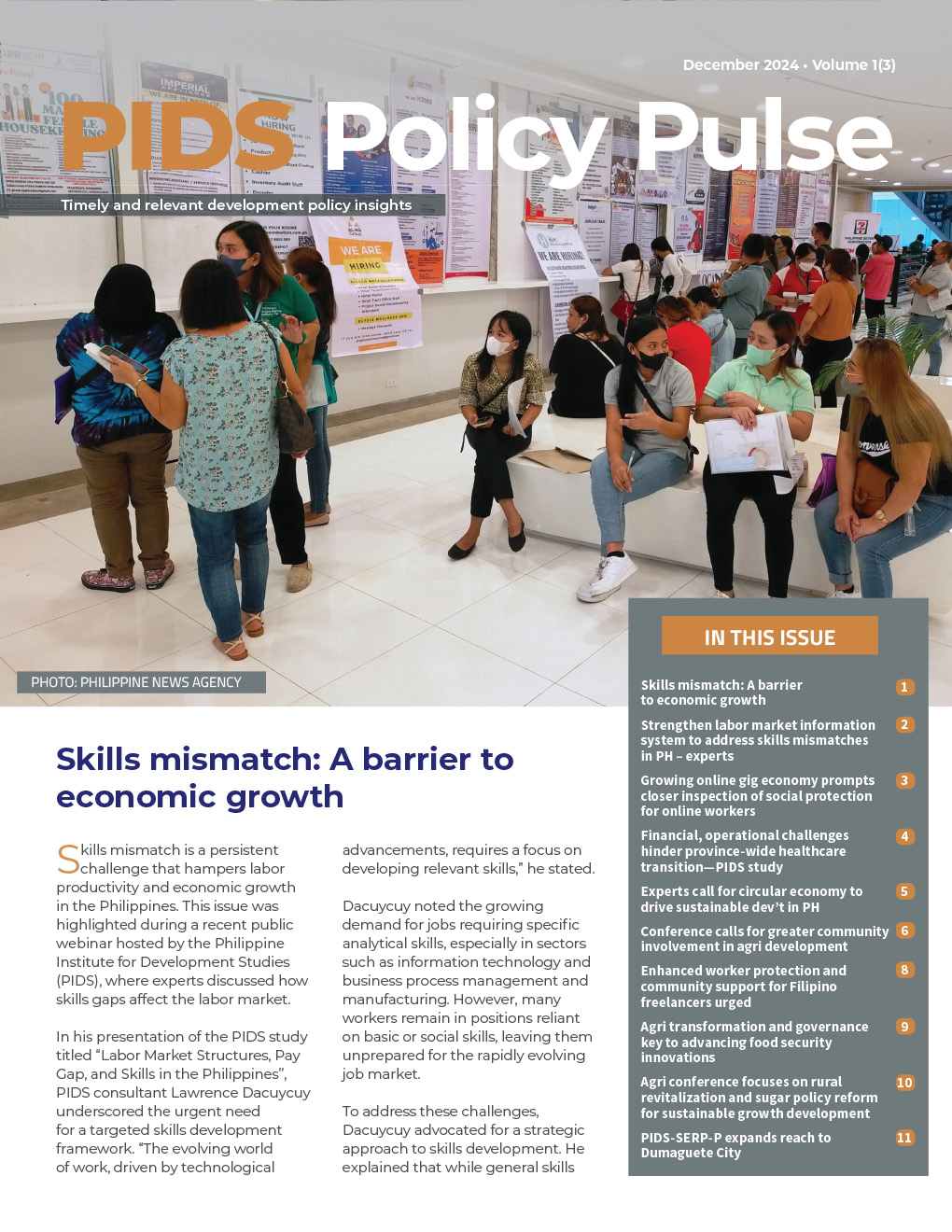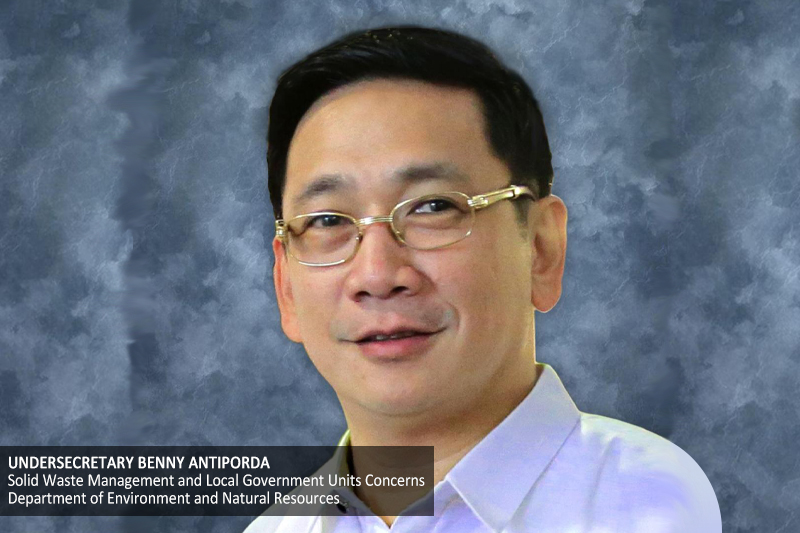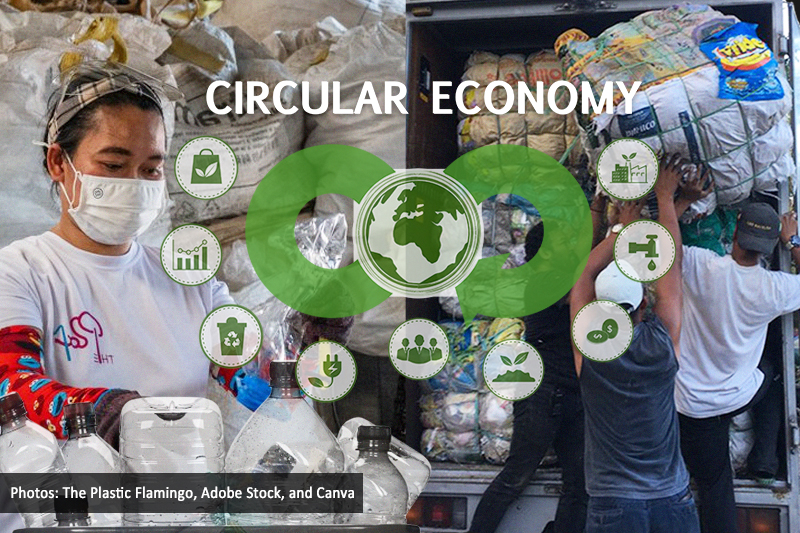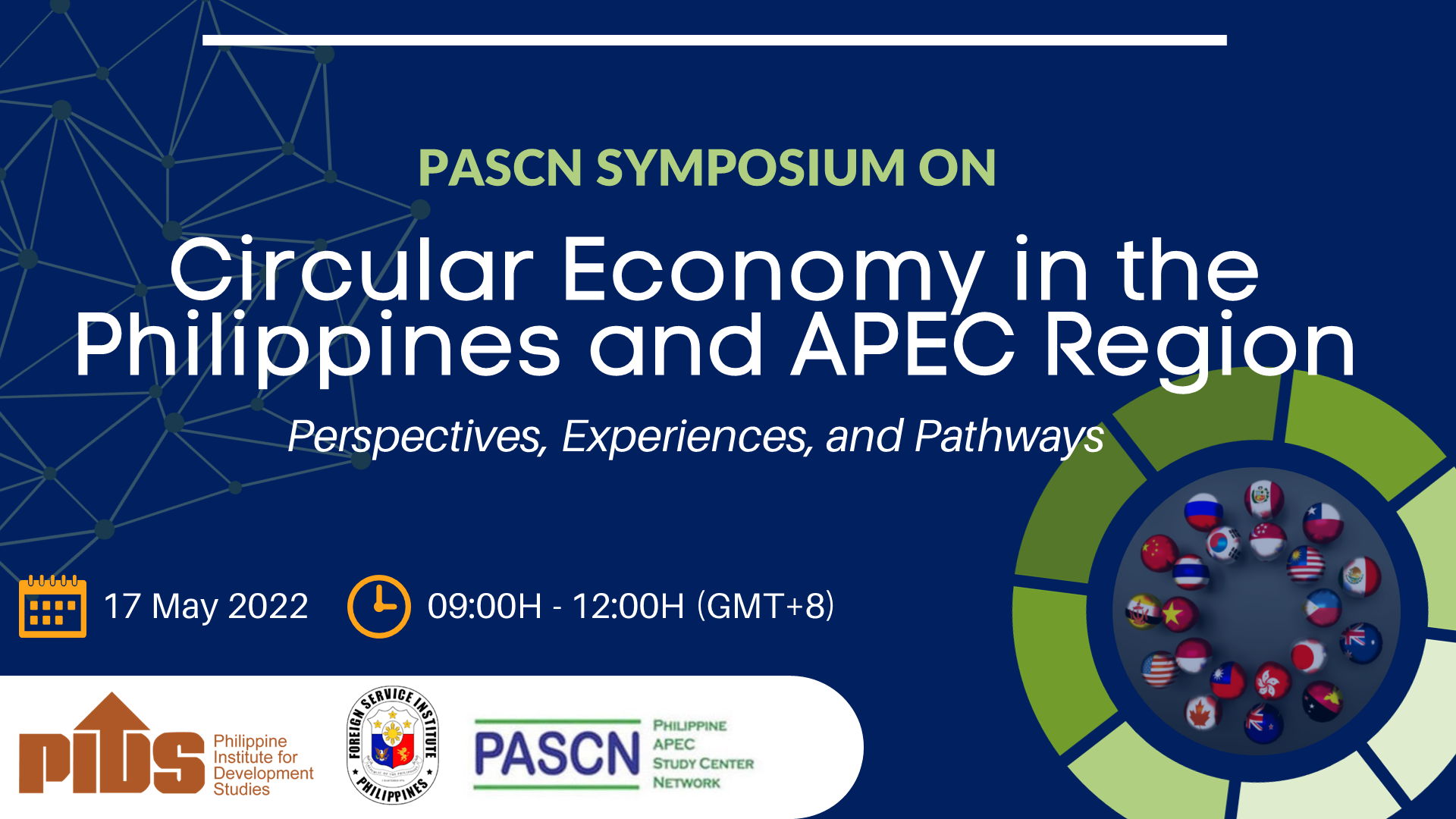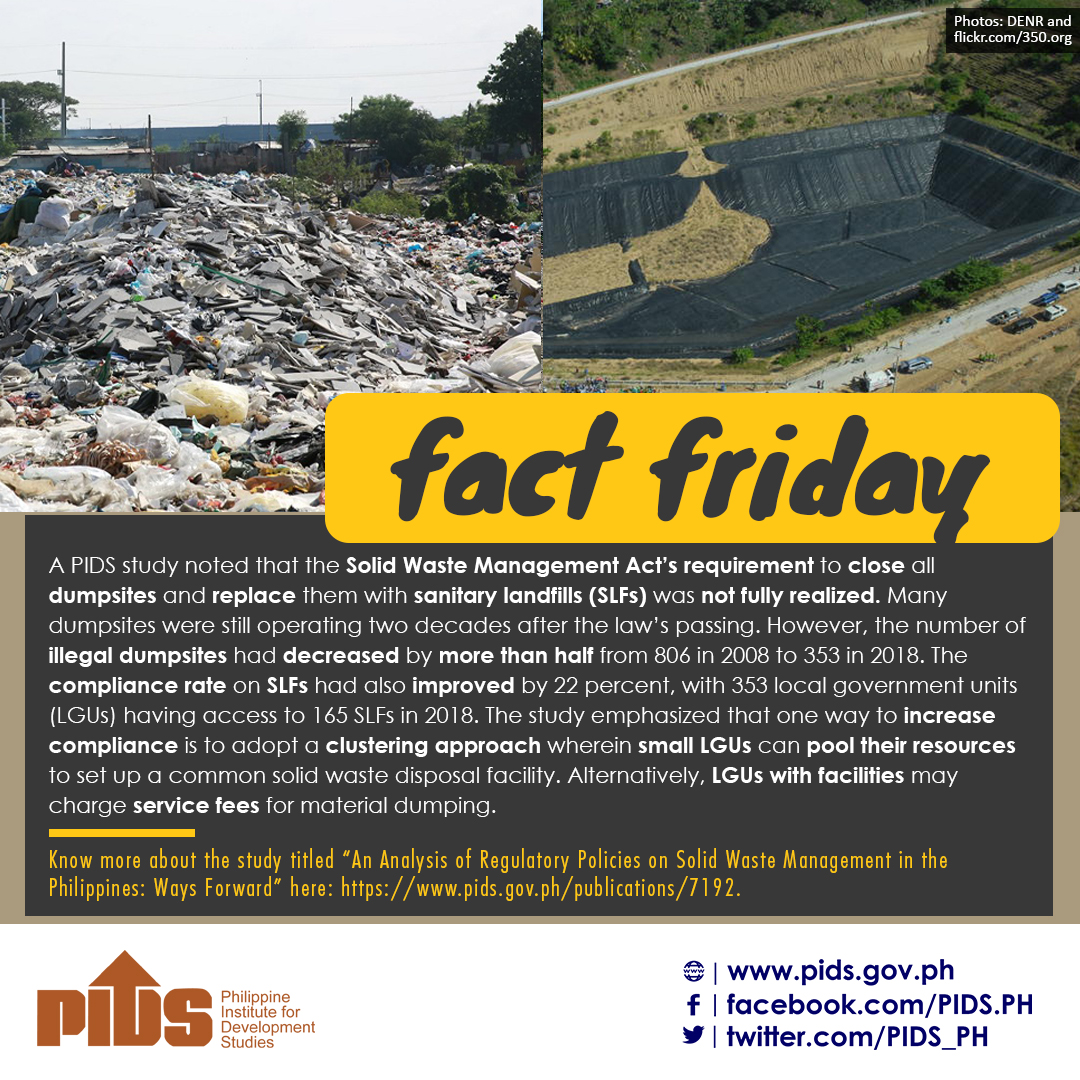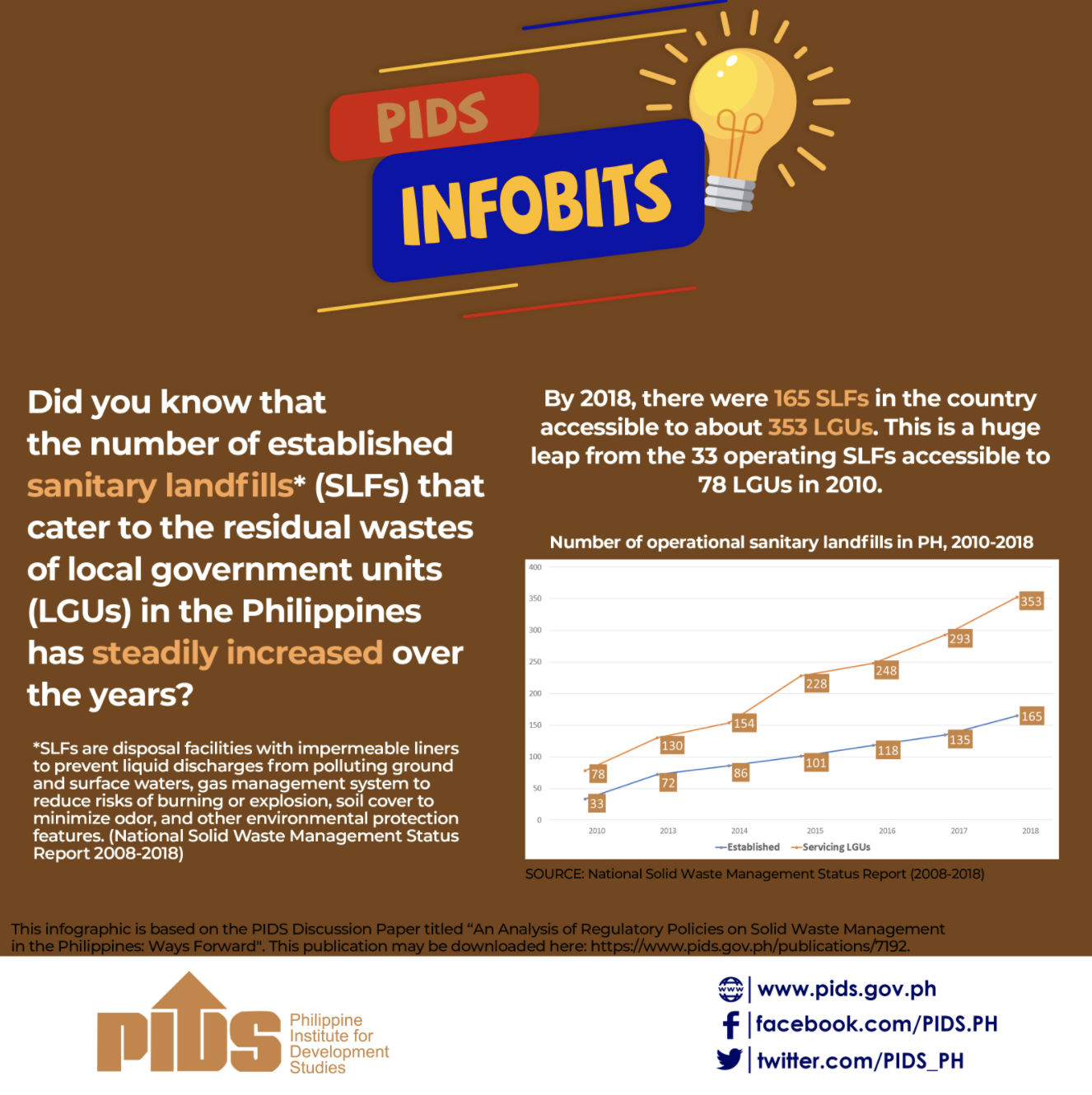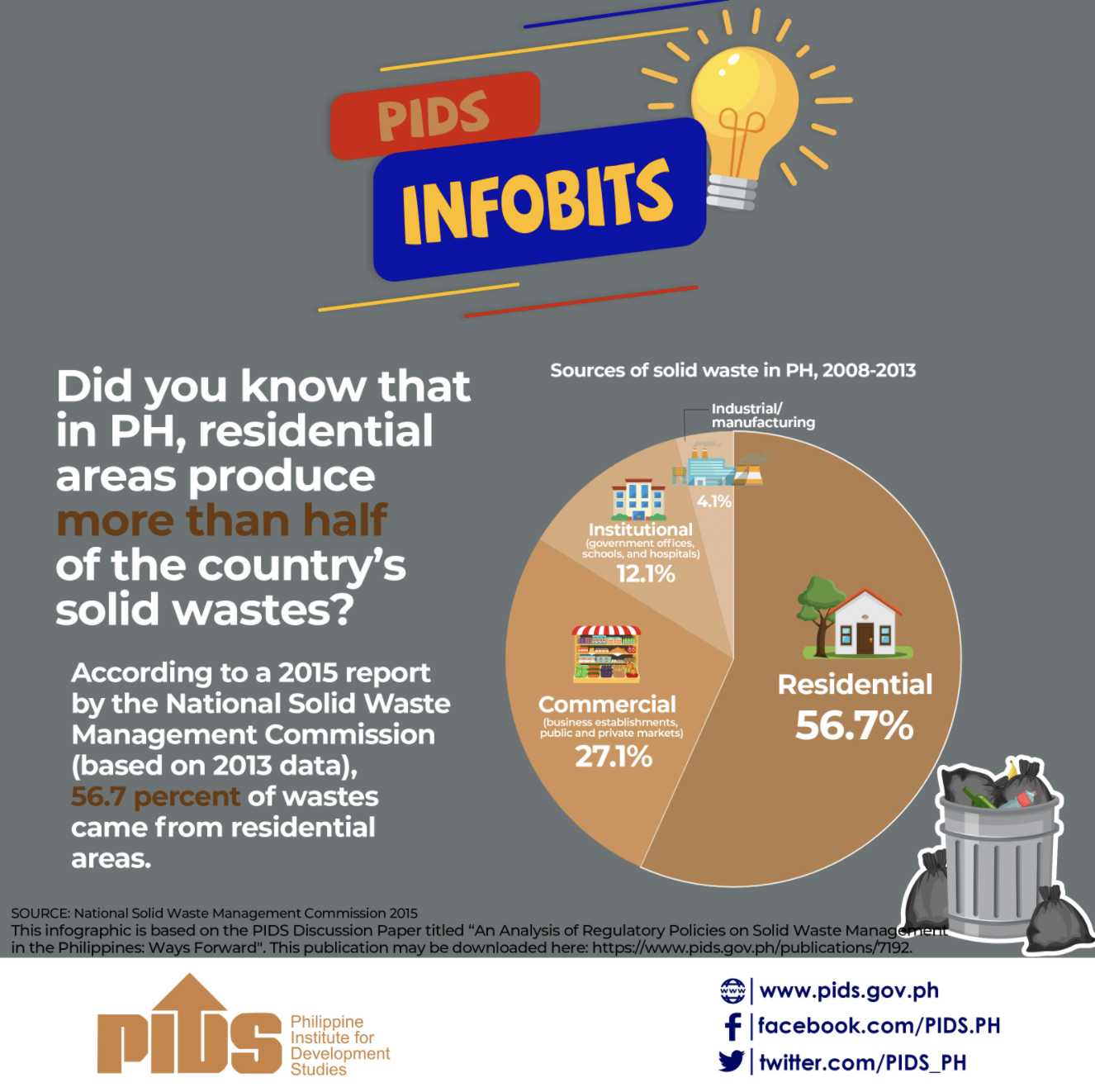Solid waste management has been a complex and evolving challenge for the Philippines. Since its passage more than two decades ago, Republic Act No. 9003, or the Ecological Solid Waste Management Act of 2000, has anchored the country’s waste management initiatives. However, challenges persist in the policy’s implementation at both the national and subnational levels. The passage of the Extended Producer Responsibility (EPR) Act of 2022 is a positive step towards improving waste management and achieving a circular economy (CE). Moreover, issues remain, including the need for clarity in the scope and definition of CE, operationalization of PROs, setting of costs and fees, the role of NGAs and LGUs, program targets, and informal sector participation. Nevertheless, recent policy and institutional developments present avenues for better stakeholder cooperation and collaboration and the application of technological solutions and innovations. The government needs to focus on bridging critical institutional and implementation gaps, including the creation and/or operationalization of the NEC and local solid waste management or environment offices, provision of technology, facilities, and waste management resources, and facilitation of public-private partnerships for capital and infrastructure needs.
Comments to this paper are welcome within 60 days from the date of posting. Email publications@pids.gov.ph.
Citations
This publication has been cited 2 times
- DailyGuardian. 2024. PIDS study: Adopt circular economy to improve solid waste management. DailyGuardian.
- Manila Bulletin. 2024. Waste management is a collective responsibility; contribute your share for a healthier environment. Manila Bulletin.

